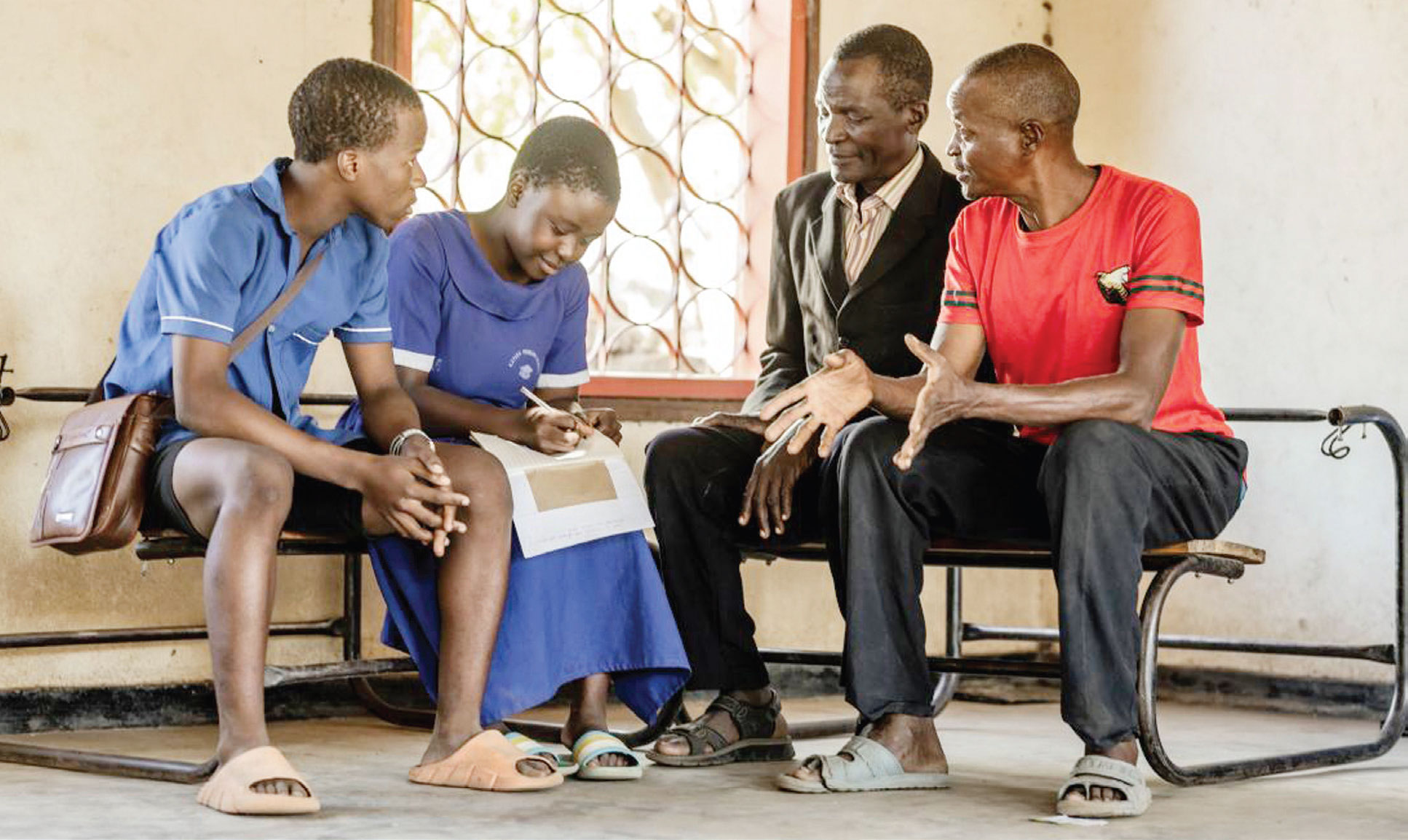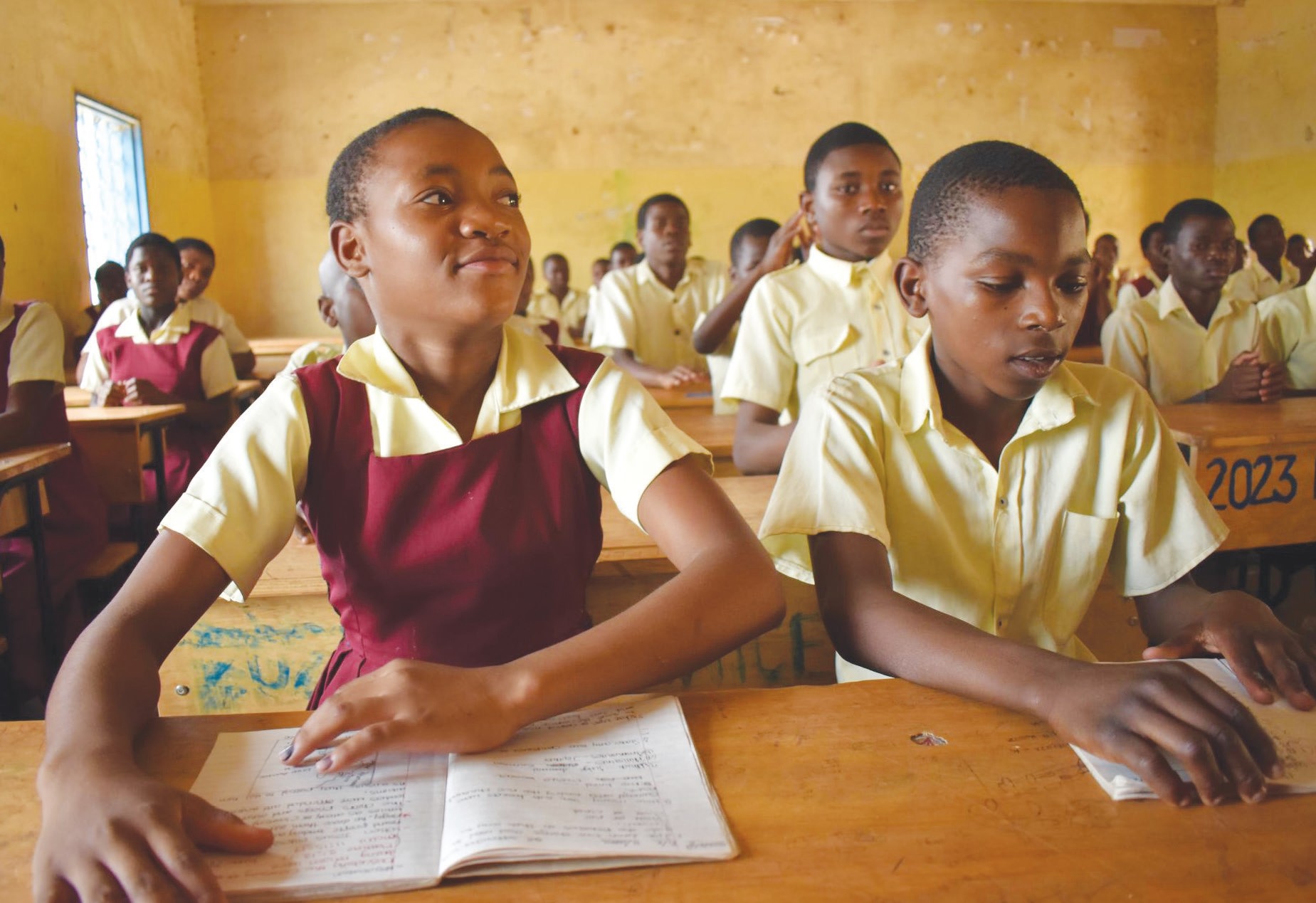Women MPs fire girls to learn
The life and education of Salome Khaneni, 15, was seldom easy.
The Form Two girl used to walk over 3.5 kilometres to get to school and back.

The long walks to school proved a task too daunting for most of her peers who ended up dropping out to marry and become mothers before their bodies were ready for the rigours and risks of child-bearing.
However, the teenager has survived the tale of children raising children, which repeats itself with furious frequency in Walamwa Village and surrounding communities in Traditional Authority Chikowi, Zomba.
Education in wheels
Currently, she no longer gets to class too tired to learn.
Salome was among learners who received pushbikes from World Bicycle Relief (WBR) to ease the tedious walks to school.
“My village is almost four kilometres from school and I mostly got to class late, perspiring and too tired to learn. It wasn’t easy. This seriously affected my performance in class,” she says.
Since 2017, the WBR has offered 400 bicycles to students.
The mobility boost keeps transforming the school attendance, retention and performance of girls such as Salome.
Headteacher MacDonald Kadewere is excited by the intervention which has put girls on the wheels, saving them from the risk of quitting school and marrying young.
“The distribution of bicycles comes in response to a baseline study conducted by Family Health International, which confirmed that long walks to school were among the main causes of rising numbers of children dropping out from our school,” he explains.
According to Kadewere, the bicycles were shared at a ratio of seven girls for every three boys, prioritising learners with disabilities. As schools are few and far apart, the assistance also targeted children too young for the long walks.
He says: “Since the learners received the bicycles, the retention rate at our school has tremendously improved and so has the pass rate. Unlike in the past, now we send our students to national universities and colleges every year.”
Although the school is in a remote part of Zomba District, the learners dream of lifting themselves and their rural locality out of poverty.
They envision themselves remaining in school until their dreams come true, marrying when they want and playing pivotal roles in transforming Malawi into a better place for every child when they grow up.
Salome aspires to become a teacher and go-to person for girls. According to the 2015 Malawi Demographic and Health Survey, nearly half of girls in Malawi marry before their 18th birthday and one in three get pregnant before reaching 19.
“If my dream is fulfilled, I want to become a model for girls from my area who rush into early marriages and pregnancies instead of remaining in school,” she states.
Learning from MPs
To keep the girls’ dreams alive, the Gender and Justice Unit (GJU) recently facilitated an open interaction between the learners and the Parliamentary Women’s Caucus (PWC) in Salome.’s school The children and lawmakers exchanged notes and insights regardless of their varied age, experience and social status.
Roseby Gadama, member of Parliament (MP) for Zomba Thondwe, says the caucus and its partners are implementing several initiatives to encourage the girl child to stay in school and avoid early pregnancies and marriages.
She says: “The school dropout rate here in Zomba remains high and the problem has been compounded by the Covid-19 pandemic. When the schools were temporarily closed, many learners didn’t return to school.”
About 13 000 girls fell pregnant and 40 000 married before their 18th birthday during the six-month emergency school closure in 2020, reports the Ministry of Gender and Community Development.
Aisha Mambo, Second-Deputy Speaker of Parliament, says there are numerous unmet needs that force girls to quit school. The risk factors include lack of learning materials, food and uniform.
“As MPs, we have the welfare of women and girl children at heart. We want to encourage them to stay in school and work hard to achieve their dreams.
“We want to show them that it is possible to make it big even from remotest areas. Regardless of their background, these boys and girls have the potential to become influential people in our society,”
GJU executive director Sarai Chisala Tempelhoff said the motivational meeting conforms to the organisation’s mission of enhancing gender equality and social justice through strategic partnerships with like-minded change agents.
She says: “In response to the Covid-19 situation and rampant gender-based violence [GBV] cases in the country, our GBV unit provides dedicated psychological, social and legal services to women and girls experiencing violence during the pandemic in Malawi.
“We also nurture young leaders through the feminist leadership course that aims to cultivate a group of politically savvy young women who will be active participants in shaping the national development agenda.”
The sight of women MPs freely interacting with girls, fired up Salome’s zeal to remain in school.
She promised to remain steadfast in pursuit of her dream.






One Comment